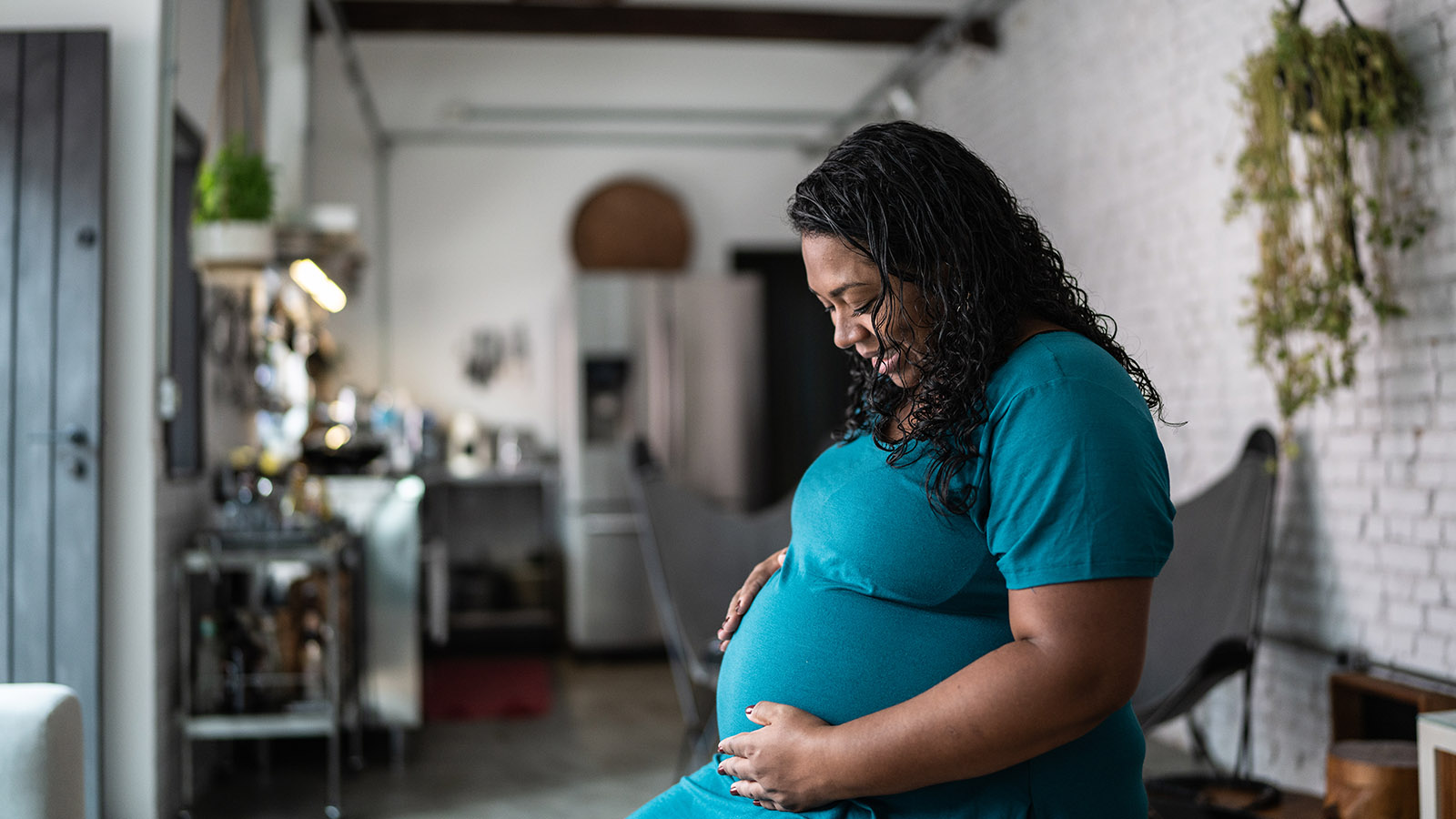The Truth About Taking Antidepressants During Pregnancy
It’s normal to worry about taking medications during pregnancy. But, stopping antidepressants can lead to serious consequences for mom and baby. Weigh the benefits and risks.

By Melissa Yurkanin, DO, Obstetrician and Gynecologist—Virtua OB/GYN – Cherry Hill
When you’re pregnant, it’s normal to worry about how your diet, activity level, and environment will affect your baby. And, if you’re taking an antidepressant while pregnant, you may be especially concerned about your baby’s safety.
Many expectant moms believe that they need to stop taking all medications during pregnancy, but this isn’t true. Stopping the use of health-sustaining medications such as antidepressants, or reducing your dosage, can have serious consequences.
Suddenly stopping the use of antidepressants without medical supervision can cause your mental-health-related symptoms to return. In addition, expectant moms also may experience antidepressant withdrawal symptoms that range from unpleasant to dangerous, including:
- Anxiety, irritability, or mood changes
- Depression
- Dizziness
- Flu-like symptoms, such as muscle aches, chills, fatigue, and headache
- Insomnia, which may be accompanied by nightmares
- Nausea and vomiting
Evaluating the risks of antidepressant use during pregnancy
One of the biggest concerns of using antidepressants during pregnancy is birth defects.
It’s true that taking some medications during pregnancy, such as isotretinoin (Accutane or Claravis) and thalidomide (Thalomid), can cause severe birth defects. But, when it comes to taking antidepressants, the risk of birth defects is low—between 2-4 percent in the general population.
Also, if a woman takes certain anti-anxiety medications during pregnancy, there’s a very low risk that the newborn can experience withdrawal after birth.
It’s important to note that most clinical trials studying medications aren’t conducted with pregnant women. However, medical providers have access to information and studies performed after medications are on the market that provide data on whether they’re safe for expectant moms.
But, beyond evaluating birth defect risks with antidepressant use, providers have to consider the expectant mom’s overall mental and physical health and how that can affect the unborn baby’s health, too.
Untreated mental health conditions can pose health risks that are as serious or more serious than the possible side effects of taking antidepressants. These risks include preterm birth, low birth weight, developmental delays, and behavioral and emotional challenges.
However, medical providers recommend that expectant moms avoid taking medications that are new on the market. That’s because new medications haven’t been used or studied widely enough among pregnant women to generate findings about whether they’re safe.
A team approach to depression treatment in pregnant women
If you’re pregnant or thinking about becoming pregnant, talk to your prenatal care and mental health provider about your antidepressant regimen. Your providers will conduct a complete assessment of your condition and help you to weigh the benefits and risks of continuing to take an antidepressant.
If you have concerns about the safety of your unborn baby but need to continue taking antidepressants, talking to your providers can give you peace of mind. If necessary, your OB/GYN and mental health provider can switch you to a different medication with a lower risk or even lower your dose.
With information from your trusted medical team and attention to your overall physical and mental health, you can have a healthy pregnancy while taking an antidepressant.
Learn more about managing depression during and after pregnancy. Or, call 844-896-6367 to speak with a Virtua women’s health navigator, who can connect you to a Virtua OB/GYN.
